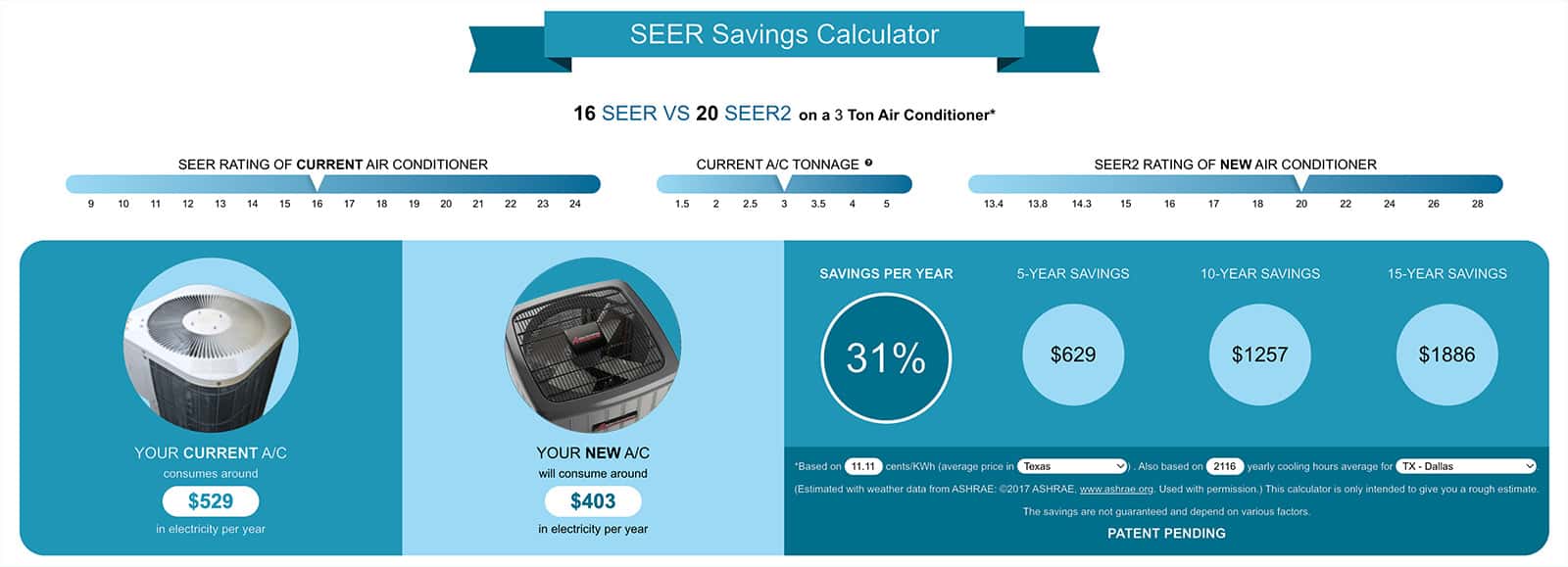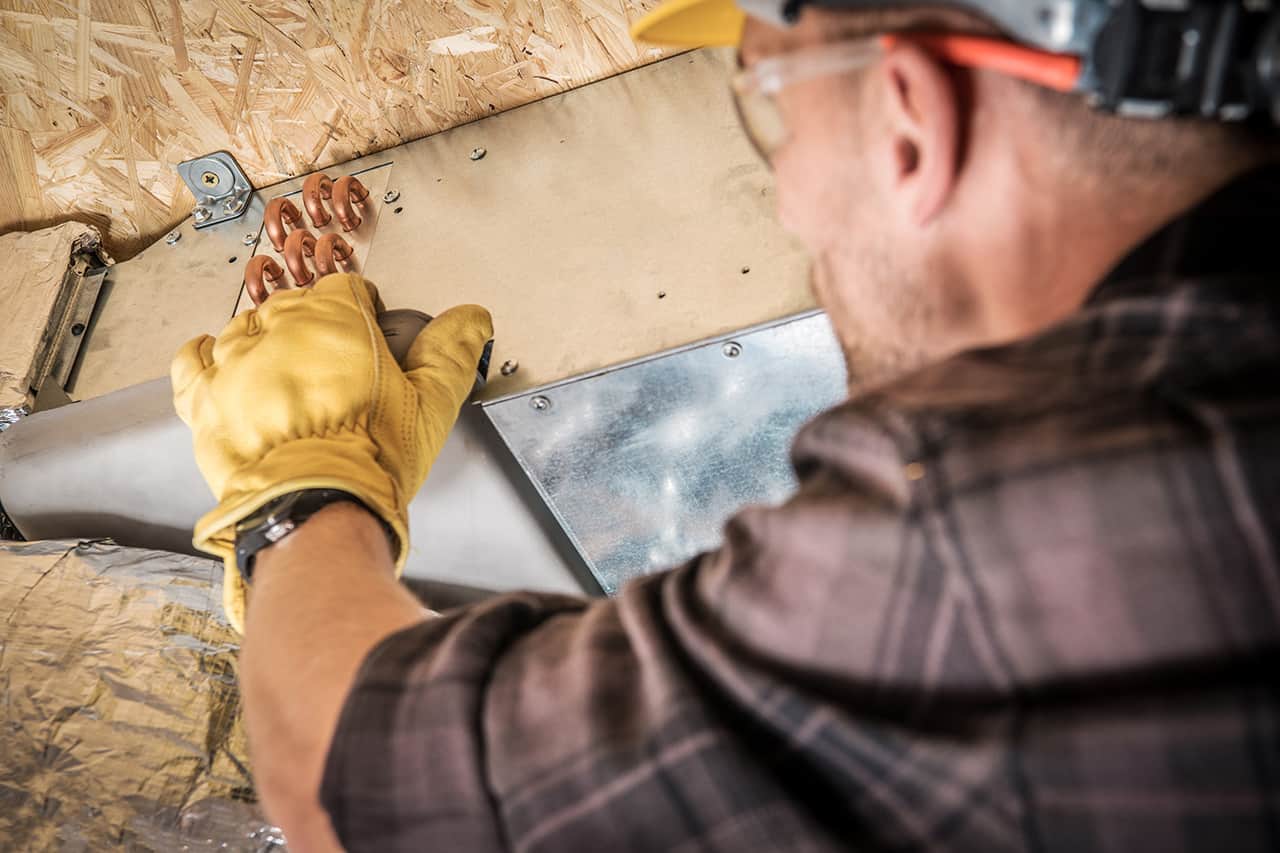
Are you struggling with the decision of whether to repair or replace your aging air conditioning unit? With the summer heat bearing down, a malfunctioning AC can be a serious inconvenience, but before you rush into a repair, it’s important to weigh the costs and benefits.
This article will explore the factors to consider when deciding whether air conditioning repairs are worth it for you.
The first factor to consider is the cost of repair. How much will it cost to fix your AC unit? Is it a simple fix or a more complex issue that will require extensive repairs?
The age of your system is also a crucial factor to consider because older units may require more frequent and expensive repairs. Additionally, you’ll want to consider the energy efficiency of your AC unit and whether it may be more cost-effective to replace it with a newer, more efficient model.
By considering these factors, you can make an informed decision about whether air conditioning repairs are worth it for you.
The Cost of Repairing an Air Conditioning Unit
If your aging air conditioner is acting up, you may be wondering if repairing it is worth the cost, which is like weighing the anchor to see if it’s worth the effort of keeping the ship from drifting away.
To determine if it’s worth repairing your AC, you can multiply the age of the unit by the repair cost. If the total exceeds $5,000, it’s time to replace the AC. However, if the repair cost is low and the system is well-maintained, repairing it may be the best option.
When deciding whether to repair or replace your air conditioning unit, the repair cost and budget constraints are important factors to consider. If the repair cost is less than 50% of the cost of replacement and the system only needs occasional repair, it’s worth repairing. However, if the repair cost is high and the system is nearing the end of its lifespan, it’s time to consider replacing it.
Don’t hesitate to get a second opinion and weigh all the factors before making a decision. Check out this article about the most common HVAC problems from an aging A/C system.
The Lifespan of an Air Conditioning Unit
Consider the age of your AC unit and whether it’s been well-maintained to determine if it’s time to replace it instead of repairing it.
The lifespan of an air conditioning unit is affected by various factors. While the U.S. Department of Energy states that a central air conditioner can last up to 15 to 20 years, the actual lifespan can be shorter or longer depending on the quality of installation and maintenance. In harsher climates, the AC may last only 10 to 12 years.
To extend the lifespan of your AC, it’s crucial to keep up with regular maintenance. Annual maintenance and tune-ups can prevent many AC problems and save you money in the long run. Changing the filter every 1 to 3 months, keeping plants and debris away from the outdoor unit, and scheduling minor repairs when necessary can help your AC last longer.
Neglecting maintenance can result in multiple problems, making repairs too expensive and replacement more affordable in the long term.
If your AC unit is over 10 years old and needs major repairs, consider the benefits of replacing it. A new and more efficient unit will reduce energy costs, improve comfort levels, and have a longer lifespan.
While repairing an AC may seem like the cheaper option, it’s essential to consider the cost comparison of repairing vs. replacing an AC. Ultimately, the decision to repair or replace an AC unit depends on your unique situation, but it’s essential to consider the factors affecting AC lifespan, maintenance tips for AC longevity, and the benefits of replacing an old AC.
The Energy Efficiency of an Air Conditioning Unit
Get ready to save money and improve your home’s comfort level with a more energy-efficient air conditioning unit. Upgrading to a new AC with a higher SEER rating can significantly reduce your energy bills.
SEER stands for Seasonal Energy Efficiency Ratio, and it measures the amount of cooling an AC unit produces per unit of energy consumed. The higher the SEER rating, the more efficient the unit is.
By upgrading to a unit with a higher SEER rating, you can enjoy energy savings of up to 30%. This means a more energy-efficient unit not only helps you save money, but also reduces your carbon footprint.
In fact, according to the U.S. Department of Energy, upgrading to a higher SEER unit can reduce your CO2 emissions by up to 4,000 pounds per year.
In addition to energy savings and environmental impact, upgrading to a more energy-efficient unit also means upgrading to the latest technology. Newer models feature advancements such as variable speed technology and zoning capabilities, which allow for more precise temperature control and improved overall comfort.
So, not only will you save money, but you’ll also enjoy a more comfortable home.

The Extent of the Damage to an Air Conditioning Unit
Assessing the extent of damage to your aging AC unit is crucial in determining whether a repair or replacement is necessary for optimal cooling performance and energy efficiency. While some repairs can be done on your own, it’s best to have a professional assessment of the damage to avoid further complications.
A professional technician can inspect and diagnose the issue, providing you with viable repair options or replacement considerations. If the damage is minor, such as a clogged air filter or a dirty condenser coil, DIY repairs may suffice. But if the problem is more complex, like a refrigerant leak or compressor failure, it’s best to leave it to the professionals.
Attempting to repair these issues without proper knowledge can result in further damage, costing you more in the long run. To prevent future AC problems, consider investing in preventative maintenance. Regular maintenance can prolong the lifespan of your AC, improve efficiency, and prevent costly repairs.
But if your AC unit is aging and multiple repairs have been done in the past, replacement may be the better option. A new, energy-efficient system can save you money on energy bills and provide optimal cooling performance.
The Benefits of Repairing an Air Conditioning Unit
Repairing an aging AC unit can breathe new life into your home’s cooling system, like giving a car a tune-up for better performance on the road. The benefits of repairing your AC unit are numerous.
For one, it can save you money in the long run. Repairing your AC unit costs less than replacing it, and the savings can be significant. Additionally, repairing your unit can improve its efficiency, resulting in lower energy bills and increased lifespan.
One of the main benefits of repairing your AC unit is improved performance. If your AC unit is not functioning properly, it can lead to hot and cold spots in your home, reduced airflow, and increased humidity. Repairing your AC unit can result in a more comfortable home environment.
The Drawbacks of Repairing an Air Conditioning Unit
Opting to repair an aging AC unit may not always be the most cost-effective solution in the long term. While repairs can restore cooling performance and improve efficiency, there are drawbacks to consider.
One potential drawback is the potential costs involved. Multiple repairs in one year can strain your budget, and major repairs can be expensive.
Another drawback is the time investment required. Depending on the extent of the repairs, your AC unit may be out of commission for several days or even weeks. This can be especially problematic during the hot summer months when you rely on your AC the most.
Additionally, there may be reliability concerns with an aging unit that has required numerous repairs. It may be more beneficial to replace the unit altogether.
Environmental impact is another factor to consider. Older AC units may use R-22 Freon, which is being phased out due to its harmful effects on the environment. Recharging an R-22 system is becoming prohibitively expensive, and finding replacement parts for one can also be difficult and expensive. Upgrading to a newer, more environmentally friendly unit may be a better long-term solution.
There are safety risks to consider. Older AC units may be more prone to electrical issues or other safety hazards that can put your home and family at risk. By opting to replace the unit, you can ensure that your AC system is up to current safety standards and regulations.
When to Consider Replacing an Air Conditioning Unit
You’re not a fortune teller, but if your air conditioner is approaching its 15th or 20th birthday, it might be time to consider replace your air conditioner before it kicks the bucket and leaves you sweating like a sinner in church. Factors to consider when replacing an air conditioning unit include the age of the unit, the cost of repairs, and how well it has been maintained.
If your AC is over 10 years old and requires major repairs, it may be more cost-effective to replace it with a newer, more efficient unit. Upgrading to a more efficient HVAC unit can also help reduce energy costs and improve your home’s comfort level. In addition, there may be financial incentives for replacing your AC, such as rebates, tax credits, and other incentives offered by manufacturers, utility companies, and local government agencies. It’s worth looking into these incentives to see if they can save you money in the long run.
To ensure your new AC lasts as long as possible, it’s important to maintain it properly. This includes annual maintenance and tune-ups, changing the filter regularly, and scheduling minor repairs as needed. Choosing a matched system for better efficiency can also improve the lifespan of your AC.
By considering these factors, you can make an informed decision about whether it’s worth it to repair or replace your air conditioning unit.
Making an Informed Decision for Your Home’s Comfort
Considering factors such as age, maintenance, and energy efficiency incentives can help you make an informed decision about whether to repair or replace your AC for optimal home comfort.
If your system has been well-maintained and is less than 10 years old, repairing it can have many benefits. Regular maintenance can improve efficiency and extend the lifespan of your AC, saving you money in the long run. Additionally, repairing your AC is often more cost-effective than replacing it, especially if the estimate is less than 50% of the cost of a new unit.
However, if your AC is over 10 years old and requires major repairs, it may be more affordable to replace it. Age and repair costs are major factors to consider when making your decision. Additionally, climate considerations should also be taken into account. If you live in a harsh climate, your AC may have a shorter lifespan and require more frequent repairs.
Upgrading to a newer, more efficient unit will reduce energy costs and provide better home comfort, especially if you’ve noticed hot and cool spots, humidity issues, or increasing energy bills.
It’s important to consider rebates and incentives when deciding whether to repair or replace your AC. Manufacturers, utility companies, and local government agencies often offer financial incentives for installing high-efficiency equipment. These incentives can save you hundreds or even thousands of dollars on your new unit. When making your decision, be sure to factor in these potential savings to make the most informed decision for your home comfort and budget.
Frequently Asked Questions
Are there any DIY repairs I can do on my air conditioning unit?
When it comes to simple DIY repairs for your air conditioning unit, there are a few things you can do to address common AC issues and keep your equipment running smoothly.
First, make sure to regularly clean or replace your air filter to improve airflow and prevent dust and debris buildup.
Additionally, check your thermostat settings and ensure they’re properly calibrated to avoid unnecessary energy usage.
If you notice your system isn’t cooling properly, try cleaning the condenser coils or checking for any refrigerant leaks.
However, it’s important to note that some AC issues require professional expertise and attempting complex repairs could potentially cause more harm than good.
In terms of cost-effective solutions, investing in routine equipment maintenance and scheduling regular tune-ups can help catch potential problems early on and potentially prolong the lifespan of your unit.
Can I still use my R-22 air conditioning unit?
As an air conditioning unit owner, you may be wondering if you can still use your R-22 system. With the phase-out of R-22, it’s becoming more expensive to recharge and repair these units. It’s also difficult to find replacement parts for them.
The EPA prohibits retrofitting of R22 refrigerant systems as each HVAC system is designed to operate with a specific type or a limited number of refrigerants. Attempting to replace R22 with a safer refrigerant in an existing system will result in malfunctioning, as the system is designed to use R22. The EPA’s Significant New Alternatives Policy does not have any authorized quick fixes for R22 refrigerant. Therefore, when repairing R22-using systems, HVAC technicians will continue to use recycled or reclaimed R22 and disregard retrofitting as a solution.
If the unit is older and has major issues, it may be more cost-effective to replace it with a newer, more efficient system that uses R-410A refrigerant. This upgrade can save you money on energy costs and potential repairs in the long run.
How often should I schedule maintenance for my air conditioning unit?
Regular maintenance is crucial to keep your air conditioning unit functioning properly. Without proper maintenance, your AC may start showing signs of malfunction such as reduced cooling performance, strange noises, or unpleasant odors.
To avoid these issues, it’s important to schedule professional inspections at least once a year, preferably before the start of the cooling season. During these inspections, a technician can identify and fix small problems before they turn into major issues.
In addition, there are several DIY maintenance tips you can follow, such as cleaning or replacing air filters, keeping the outdoor unit free of debris, and checking the thermostat settings. Neglecting maintenance can lead to costly repairs or even premature system failure, which is why regular maintenance is one of the best ways to extend the lifespan of your AC and enjoy its benefits.
What is the average cost of replacing an air conditioning unit?
When it comes to AC replacement cost, there are a few budgeting tips to keep in mind.
On average, a new air conditioning unit can cost anywhere from $5,000 to $12,500, depending on the size and efficiency of the unit. However, there are energy-efficient options that can help reduce your energy bills and potentially qualify for rebates or tax credits.
It’s important to consider the installation process as well, as a professional installation can ensure the unit is properly installed and functioning efficiently. While DIY installation may seem like a cost-saving option, it can lead to costly mistakes and potential safety hazards.
Ultimately, it’s important to consult with a professional to determine the best course of action for your unique situation and budget.
Conclusion
Now that you’ve considered the various factors involved in repairing or replacing your air conditioning unit, it’s time to make an informed decision.
Remember, repairing your AC unit can be a cost-effective solution, particularly if the damage is minor, the system is relatively young, and you’ve kept up with maintenance.
However, if your unit is over a decade old, requires frequent repairs, or uses R-22 Freon, it may be time to replace it.
In the end, the choice is yours, but keep in mind that investing in a new, energy-efficient unit can offer long-term benefits, such as lower energy bills and improved comfort.
As the saying goes, “an ounce of prevention is worth a pound of cure.” So, don’t wait until your AC unit breaks down completely before taking action.
Consider all the factors we’ve discussed and make a decision that’s best for your home’s comfort and your wallet




